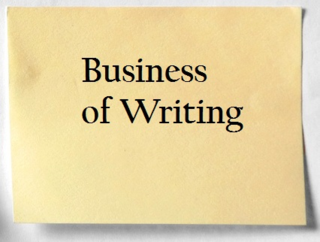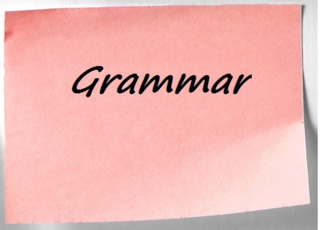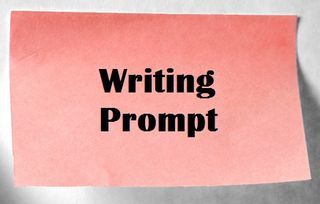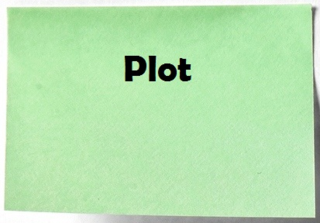Rob Bignell's Blog, page 266
March 25, 2016
Get a hashtag for your book to generate sales
Especially  if you have a series of books, you should create a hashtag for them. Doing so is a great way to increase your number of followers, which leads to increased book sales. Hashtags are easy for others to remember, and whenever your tweet gets retweeted, your post shared, or your photo perused, the hashtag ��� and an entry to your books ��� is shared with many others who may know nothing about your books.
if you have a series of books, you should create a hashtag for them. Doing so is a great way to increase your number of followers, which leads to increased book sales. Hashtags are easy for others to remember, and whenever your tweet gets retweeted, your post shared, or your photo perused, the hashtag ��� and an entry to your books ��� is shared with many others who may know nothing about your books.
A hashtag is easy to create. Simply come up with some short wording (such as your series��� title), place a hashtag in front of it, and in every social media posting your make that relates to your books, include it. For example, with my hiking guidebooks I use the hashtag #dayhikingtrails on every single tweet, Facebook post, Pinterest pin, Google+ post, Instagram photo and more related to my titles.
Always be sure to include this hashtag in the descriptions on your home page at each social media platform you use. Then, when someone clicks on the hashtag, your page likely will come up as an option. Those who are interested will follow you and even explore further ��� which means they���ll come across your books and hopefully make a purchase.
Professional Book Editor: Having your novel, short story or nonfiction manuscript proofread or edited before submitting it can prove invaluable. In an economic climate where you face heavy competition, your writing needs a second eye to give you the edge. I can provide that second eye.
<A HREF="http://ws-na.amazon-adsystem.com/widg... Widgets</A>
Related articles
 How to best use hashtags on Pinterest
How to best use hashtags on Pinterest Use hashtags to sell your book on Facebook
Use hashtags to sell your book on Facebook Add social sharing links to your ebook
Add social sharing links to your ebook
March 24, 2016
Report piracy of your books at Amazon.com
Among the most  significant problems for self-publishing authors is book piracy. In the digital age, such piracy is more common than you might expect, and you probably will need to deal with it, especially if you distribute your books at Amazon.com.
significant problems for self-publishing authors is book piracy. In the digital age, such piracy is more common than you might expect, and you probably will need to deal with it, especially if you distribute your books at Amazon.com.
I disagree with self-publishing experts who piracy of your books is ���good.��� Besides duping a purchaser of your book ��� which hurts the buyer and keeps money out of your pocket ��� pirated books undercut your marketing efforts. Readers take a lot of routes to locating a book, and their search easily can lead them to the pirate���s page for your book rather than the one you���ve spent a lot of hours building, tweaking and promoting. Further, if pirates do even bother to deliver your book to the buyer, it usually is an inferior version, which hurts your reputation.
A common book pirating scam is to set up their own page for your book at Amazon.com. They obtain a copy of your book through an app and sometimes even by downloading it through other vendors, such as Smashwords. Next, they assign their pirated version of the book a new ASIN. The pirate then charges several times the retail price that you set for your book. Sometimes the pirate isn���t even selling your book but merely using it to defraud customers out of money by having them pay and then not sending the book.
You can determine if pirates have done this to you simply by going to Amazon.com and searching for the name you use as an author. Don���t place your name in quotation marks, as sometimes pirates switch the order of your first and last name. Another option is to type the title of your book (again without quotation marks) and look for one that is way overpriced.
Once you find a pirated book, immediately complete Amazon.com���s legal team���s online form (www.amazon.com/gp/help/reports/infrin...) notifying them that your book has been pirated. Amazon.com will need you to send:
��� An electronic or physical signature of the person authorized to act on behalf of the owner of the copyright interest (that���s you the author)
��� A description of the copyrighted work that you claim has been infringed upon (this is the book's title)
��� A description of where the material that you claim is infringing is located on Amazon.com���s website (this is the URL where the pirates have their page)
��� Your address, telephone number, and e-mail address
��� A statement by you that you have a good-faith belief that the disputed use is not authorized by the copyright owner, its agent, or the law
��� A statement by you, made under penalty of perjury, that the above information in your notice is accurate and that you are the copyright owner or authorized to act on the copyright owner's behalf
Don���t bother to contact Amazon.com���s customer service department. It will merely offer moral support and send you an email about how to contact its legal department to have the issue remedied.
You also can contact the book pirate and ask them to remove the page; Amazon gives you the ability to do that on the page selling the pirated book. This is problematic, though. Most pirates don���t remove the page but simply change the name of who is selling it and list it at a different price. Some will simply send an automated email that you can���t respond to and will do nothing. Others will remove the book for sale but not the page, meaning there���s now a web page at Amazon.com for your title that says it���s ���Out of Print.���
During the last two days, I���ve had trouble with the following ���booksellers��� pirating my books. I���d urge you to not purchase books or any itemsfrom these ���businesses��� and to check that they are not pirating your books (If they are, report them immediately to Amazon.com):
AquaPeniel
DreamReaders
EasyGlobalBuying
Greenlife Store
JB World Books
kingmakerbooks
Lambel��
Lionkingbooks
Melbournekber
Oak Tree Brands
oz24shop
ReachTheGoal
Sophia Bookstore
Xian's Store
ZENBOOKSTORE
Professional Book Editor: Having your novel, short story or nonfiction manuscript proofread or edited before submitting it can prove invaluable. In an economic climate where you face heavy competition, your writing needs a second eye to give you the edge. I can provide that second eye.
Related articles
 Don't laugh at making this error: Hardy vs. hearty
Don't laugh at making this error: Hardy vs. hearty Q&A with Inventing Reality Editor Rob Bignell
Q&A with Inventing Reality Editor Rob Bignell Place hyperlinks in your nonfiction ebook
Place hyperlinks in your nonfiction ebook DRM: To enable or not to enable
DRM: To enable or not to enable
March 23, 2016
Stuck in a rut with startup vs. start-up vs. start up
This appears  to be one of those words in flux, as different spellings and punctuation rules are followed by different reputable sources.
to be one of those words in flux, as different spellings and punctuation rules are followed by different reputable sources.
Start-up works as a noun (a start-up business), verb (���Start-up the car!���), and adjective (start-up costs), according to merriam-webster.com. The Chicago Manual of Style, which is commonly used in book publishing, agrees.
The Associated Press Stylebook, however, dispenses with the hyphen. So almost all American newspapers and magazines use startup.
And while both oxforddictionaries.com and dictionary.cambridge.org list start-up, they also acknowledge that startup is an acceptable alternative spelling.
No one, however, gives start up as acceptable.
Bottom line: Stick with start-up unless you know the publishing house handling your manuscript uses Associated Press style, then go with startup.
Professional Book Editor: Having your novel, short story or nonfiction manuscript proofread or edited before submitting it can prove invaluable. In an economic climate where you face heavy competition, your writing needs a second eye to give you the edge. I can provide that second eye.
<A HREF="http://ws-na.amazon-adsystem.com/widg... Widgets</A>
Related articles
 Writing Inspiration: Like the rising sun, my writing casts an ever-widening light upon the world
Writing Inspiration: Like the rising sun, my writing casts an ever-widening light upon the world Word in transition: Co-worker vs. coworker
Word in transition: Co-worker vs. coworker What are 'The Big Six' book publishers?
What are 'The Big Six' book publishers?
March 22, 2016
Four writing prompts: Removal
Good stories  center on the clashing of characters��� goals and motivations. Sometimes a character���s goals and motivations arise from the need to remove some danger or threat. Here are four writing prompts for stories that involve the goal of removal.
center on the clashing of characters��� goals and motivations. Sometimes a character���s goals and motivations arise from the need to remove some danger or threat. Here are four writing prompts for stories that involve the goal of removal.
Man vs. nature
What if your main character were sent to capture or destroy some beast in the wilderness ��� a challenging task for sure, yet one he is well-suited for handling ��� but the creature turns out to be something more terrifying and powerful than he initially was led to believe? How does he defeat this beast? To make this more than a run-of-the-mill science fiction or fantasy tale, can the beast symbolize some element of society that our hero must metaphorically tame and subjugate?
Man vs. man
The main character needs to get rid of someone, such as an unwanted roommate or an annoying coworker. What is the motivation for doing this? How does he achieve this goal despite his opponent���s efforts to thwart him?
Man vs. society
Your main character needs to get rid of a new company/venture that has come to town or perhaps to unveil the unjust actions of a prominent family in town ��� both are popular with the locales, however. Why does he want to get rid of this new business/respected family? How does he change the minds of the townsfolk?
Man vs. himself
To fill his inner emptiness, our main character engages in a life of decadence ��� parties, alcohol or drugs, indiscriminate sex ��� and with increasing speed it���s spinning out of control. Our main character begins to sense this but finds the distraction at least a temporary relief. How does he regain control of his life and address the inner emptiness that actually even further consumes him, as he falls deeper into the pit of decadence? Can he even remove himself from it?
Professional Book Editor: Having your novel, short story or nonfiction manuscript proofread or edited before submitting it can prove invaluable. In an economic climate where you face heavy competition, your writing needs a second eye to give you the edge. I can provide that second eye.
&amp;amp;amp;lt;A HREF="http://ws-na.amazon-adsystem.com/widg... Widgets&amp;amp;amp;lt;/A&amp;amp;amp;gt;
Related articles
 Questions to ask yourself when plotting a story
Questions to ask yourself when plotting a story How to create an interesting villain for your story
How to create an interesting villain for your story Develop complex antagonist to maximize conflict
Develop complex antagonist to maximize conflict
March 21, 2016
Should you write a happy or an unhappy ending?
When writing  the climax your story, you���ll need to decide if the ending will be happy or unhappy.
the climax your story, you���ll need to decide if the ending will be happy or unhappy.
In a happy ending, the main character solves the story���s problems by restoring the status quo that the villain upset at the tale���s beginning. For example, in ���Star Wars IV: A New Hope,��� protagonist Luke Skywalker destroys the Death Star, allowing the rebellion to fight another day against Darth Vader and the evil Empire.
An unhappy ending, in contrast, sees the main character either not solving the story���s central problem or in doing so dying. If in ���Star Wars IV��� Luke Skywalker either failed to destroy the Death Star (which means swift destruction of the rebellion) or dies when blowing it up, the story ends on a dark note.
Most readers prefer happy endings; after all, what is the point of reading a story if after doing so we feel uncomfortable or depressed? Indeed, the structure of most modern Western literature calls for happy endings, so many readers even expect it. The danger of happy endings, however, is that if not handled well, it will come off as ���unrealistic��� and ���artificial.��� While readers want and expect a happy ending, you don���t want to force a story to disjointedly fit that mold.
Unhappy endings typically are popular with critics and cynical readers. Both prefer tragic and ironic variations of endings to those that are ���unrealistic��� and ���artificial.��� After all, what are the chances that Luke Skywalker ��� whose never flown a combat spacecraft before ��� really could make the one shot that destroys the Death Star, even if he just believes in some magical concept like the Force? Of course, these readers are in the minority. And while an unhappy ending may seem more natural in real life, you really need to be a skilled writer with a powerful message to make a depressing story work. But it has been done ��� witness F. Scott Fitzgerald���s ���The Great Gatsby��� or Shakespeare���s ���Romeo and Juliet��� and ���Hamlet.���
There are a couple of things you can do to ensure happy endings are more realistic and less artificial. One approach is to follow the dictum that anything won has to be done so at a cost. Luke Skywalker, for example, loses his aunt and uncle, his mentor Obi Wan Kenobi, and several companions from his squadron on his route to destroying the Death Star. A second approach is to ensure a fatal flaw of the character still exists at the end, though the character has improved. A Roman general might possess the fatal flaw of a superiority complex that causes him to act rashly when battling barbarians, but after a long cat and mouse game in which his forces at great cost finally vanquish their enemy, he comes away with a new appreciation of their intelligence and acumen as warriors.
Another way to avoid creating an artificial story is to simply follow British SF author Brian Stableford���s advice ��� simply extrapolate a sequence of events to its most fitting conclusion. Savvy readers will appreciate and respect your story for it.
Professional Book Editor: Having your novel, short story or nonfiction manuscript proofread or edited before submitting it can prove invaluable. In an economic climate where you face heavy competition, your writing needs a second eye to give you the edge. I can provide that second eye.
Related articles
 Lit term 'man vs. man' isn't gender specific
Lit term 'man vs. man' isn't gender specific Make tables readable in your self-published book
Make tables readable in your self-published bookMarch 20, 2016
Five Great Quotes: Writing ��� Talent or Hard Work?
���Perhaps it  would be better not to be a writer, but if you must, then write. If all feels hopeless, if that famous ���inspiration��� will not come, write. If you are a genius, you���ll make your own rules, but if not - and the odds are against it - go to your desk no matter what your mood, face the icy challenge of the paper - write.��� - J. B. Priestly
would be better not to be a writer, but if you must, then write. If all feels hopeless, if that famous ���inspiration��� will not come, write. If you are a genius, you���ll make your own rules, but if not - and the odds are against it - go to your desk no matter what your mood, face the icy challenge of the paper - write.��� - J. B. Priestly
���It���s none of their business that you have to learn to write. Let them think you were born that way.��� - Ernest Hemingway
���Talent isn���t enough. You need motivation-and persistence, too: what Steinbeck called a blend of faith and arrogance. When you���re young, plain old poverty can be enough, along with an insatiable hunger for recognition. You have to have that feeling of ���I���ll show them.��� If you don���t have it, don���t become a writer.��� - Leon Uris
���You are afraid to write your first novel because you say, ���I am not a talented great writer.��� But you forget that nobody was born a talented great writer.��� - Bangambiki Habyarimana
���The true writer, the born writer, will scribble words on scraps of litter, the back of a bus tickets, on the wall of a cell.��� - David Nicholls
Professional Book Editor: Having your novel, short story or nonfiction manuscript proofread or edited before submitting it can prove invaluable. In an economic climate where you face heavy competition, your writing needs a second eye to give you the edge. I can provide that second eye.
&amp;amp;amp;amp;amp;lt;A HREF="http://ws-na.amazon-adsystem.com/widg... Widgets&amp;amp;amp;amp;amp;lt;/A&amp;amp;amp;amp;amp;gt;
Related articles
 Five Great Quotations about Rules of Writing
Five Great Quotations about Rules of Writing Five Great Quotations about Bad Writing
Five Great Quotations about Bad Writing Five Great Quotations about Editing
Five Great Quotations about Editing
March 19, 2016
Writing affirmation: Every writing session teaches me something
Among the  biggest mistakes that writers stuck in a rut make is thinking that their writing sessions are going nowhere. Perhaps the scene you wrote doesn���t seem to advance the story, perhaps the explanation doesn���t really fit into your nonfiction book.
biggest mistakes that writers stuck in a rut make is thinking that their writing sessions are going nowhere. Perhaps the scene you wrote doesn���t seem to advance the story, perhaps the explanation doesn���t really fit into your nonfiction book.
Rather than view the writing session from a negative perspective ��� which often leads to a sour attitude when approaching your next session ��� instead look at it as a positive learning experience.
When your writing session is over, reflect on it. What can you learn from it? Try to identify a specific reason the writing is not up to your standards. Even if the answer is ���I���m not sure how to write crisp dialogue,��� that���s still something.
Now follow-up by reading about how to write tighter dialogue and see if you can revise the conversation you���ve written to make it better. Now that initial session was productive ��� it was simply the first draft.
Of course, if your vehicle is caught in mud or snow, not every effort to spin it out will succeed. Rather than frustrated, though, examine why your effort to get out didn���t work and then trying a new solution ��� like tossing sand in the rut ��� will prove much more fruitful. And just as certainly as you must get your vehicle driving down the road again, so you must keep writing!
Professional Book Editor: Having your novel, short story or nonfiction manuscript proofread or edited before submitting it can prove invaluable. In an economic climate where you face heavy competition, your writing needs a second eye to give you the edge. I can provide that second eye.
&lt;A HREF="http://ws-na.amazon-adsystem.com/widg... Widgets&lt;/A&gt;
Related articles
 Writing Inspiration: Explore then strive
Writing Inspiration: Explore then strive Sales advantages of writing nonfiction books
Sales advantages of writing nonfiction books Writing prompt: Coming up with an opening line
Writing prompt: Coming up with an opening line Thinking up a title that sells your nonfiction book
Thinking up a title that sells your nonfiction book
March 18, 2016
Promote your book by starting a Twitter chat
One great  way to promote your nonfiction book is by starting a Twitter chat.
way to promote your nonfiction book is by starting a Twitter chat.
A Twitter chat is a regularly scheduled hour or two in which you introduce a topic at a specific hashtag. It might include a short interview, conducted by tweets, with someone else on the topic. Others then can post tweets (often questions and their own suggestions) related to that topic using the chat���s hashtag. You or your guest then respond to those tweets.
By hosting a Twitter chat, you establish yourself as an expert, hopefully gaining more Twitter followers and getting people to look at your website or blog, which leads to book sales. It���s akin to hosting at the local library a public discussion, which you loosely lead, and having in the room a table where your books can be sold ��� except it���s done digitally via Twitter.
First, a couple of words of warning. For a Twitter chat to work, you���ll need quite a number of followers, at least 400 to start. A Twitter chat also is a long-term commitment, not something that is done once but instead every week for at least several months. In addition, chats tend to work best for nonfiction books and niche topics.
To set up a Twitter chat, begin by creating a unique hashtag that suggests your topic. For example, if your book is about hiking in the Midwest, you might use the hashtag #midwesthiker. No one else should be using this hashtag, or at least it shouldn���t have been used in quite a while (such as the last post using that hashtag was a couple of years ago).
Next, set up a regular time when the chat will occur. Usually the chat lasts only an hour once a week. Remember time zones, so if you set the chat up for 8 am Eastern time, that eliminates much of the West Coast from participating, as the time is 5 am there. Early afternoons usually are best for chats, as that is the peak time for Twitter use and catches all time zones.
Then create a page on your website or blog about the Twitter chat. It will give the hashtag, the day and time (be sure to include the time zone, as in Noon-1 pm Eastern), and a schedule of topics.
Of course, you���ll need to promote the Twitter chat. Use all of your social media ��� but especially Twitter ��� to regularly advertise that it���s coming up. The promotion needs to include the hashtag, date/time, and topic.
After the chat is over, consider offering post-chat transcripts. Various services (like Storify) can do that for you. This is especially important when your Twitter chat gains a lot of interest, as regular followers who missed the chat often will want to catch up.
Finally, measure your success. A Twitter chat is a couple of hours a week that could be spent writing your next book or doing other promotions. After a month or two, if you���re not getting several new followers or a few book sales from each chat, see if there���s a way you can tweak what your doing to be more successful. If it���s still not paying off after four to six months, perhaps the chat is not worth the time.
Professional Book Editor: Having your novel, short story or nonfiction manuscript proofread or edited before submitting it can prove invaluable. In an economic climate where you face heavy competition, your writing needs a second eye to give you the edge. I can provide that second eye.
<A HREF="http://ws-na.amazon-adsystem.com/widg... Widgets</A>
Related articles
 Best time to post on LinkedIn
Best time to post on LinkedIn Best time to promote your book on Google+
Best time to promote your book on Google+ When to promote your book using Twitter
When to promote your book using Twitter
March 17, 2016
Ask how your nonfiction book helps readers
There are  myriad types of nonfiction books ��� biographies and autobiographies, creative nonfiction and handbooks, scientific papers and pictures books, just to name a few. Rather than think about what peg hole your manuscript fits into, though, you may want to approach the subject by answering the question, ���How does my book help readers?���
myriad types of nonfiction books ��� biographies and autobiographies, creative nonfiction and handbooks, scientific papers and pictures books, just to name a few. Rather than think about what peg hole your manuscript fits into, though, you may want to approach the subject by answering the question, ���How does my book help readers?���
This can be a useful approach because most readers don���t care how your book is classified beyond helping them to find a set of books they want to peruse online or at a bookstore. With search engines today, a reader is much more likely to type the topic of the book they are seeking than they are to type in the kind of book they���re seeking ��� hence they���ll likely type ���Ronald Reagan��� rather than ���autobiography.��� Most importantly, though, thinking about how you want readers to utilize your book will help you stay focused when writing it.
Generally speaking, your nonfiction book can help readers in one of two following ways:
��� Provides information ��� Such books are informative and expository in nature. They might help readers solve a problem (���How to Self-Publish Your Book���), tell a personal story (���My Struggle with Cancer���), or teach them facts (���1963: The Year That Changed America Forever���).
��� Persuades them to have a certain view ��� These books aim to be persuasive in structure by providing arguments for a specific position. They might encourage political and cultural change (���Why Man Must Step on Mars ��� Now���), inspire (���Finding Inner Peace through Yoga���) or predict the future (���How America will Collapse���).
Of course, there is some crossover between these two objectives. Most notably, books that seek to persuade must offer evidence that support a position, so a good portion of such texts are naturally informative. The difference, however, is that facts and statistics are provided to make a point rather than to solely inform.
Professional Book Editor: Having your novel, short story or nonfiction manuscript proofread or edited before submitting it can prove invaluable. In an economic climate where you face heavy competition, your writing needs a second eye to give you the edge. I can provide that second eye.
&lt;A HREF="http://ws-na.amazon-adsystem.com/widg... Widgets&lt;/A&gt;
Related articles
 Writing Prompt: Pen your autobiography
Writing Prompt: Pen your autobiography Sales advantages of writing nonfiction books
Sales advantages of writing nonfiction books Five Great Quotations about Autobiography
Five Great Quotations about Autobiography Editing client publishes Egyptian history book
Editing client publishes Egyptian history book
March 16, 2016
Which one? Through vs. thru vs. threw
If only  writers would dump the mixing up of these three words into File 13!
writers would dump the mixing up of these three words into File 13!
Threw is the easy word to distinguish among these three. It means to toss, as in A movie star threw the baseball season���s opening pitch or He threw away the old papers.
Through means to go in one side and come out the other, as in They drove through a long mountain tunnel.
Thru is an informal, simplified spelling of through. So you technically would be correct to write They drove thru a long mountain tunnel.
As an informal word, thru is probably fine in emails, texts and letters to friends, but in academic papers, book manuscripts and business communication, you���d want to use through.
Professional Book Editor: Having your novel, short story or nonfiction manuscript proofread or edited before submitting it can prove invaluable. In an economic climate where you face heavy competition, your writing needs a second eye to give you the edge. I can provide that second eye.
&amp;lt;A HREF="http://ws-na.amazon-adsystem.com/widg... Widgets&amp;lt;/A&amp;gt;
Related articles
 Editing tip: Use parentheses and keep going
Editing tip: Use parentheses and keep going Editing tip: Learn some literary devices
Editing tip: Learn some literary devices Common questions about publishing ebooks
Common questions about publishing ebooks Writing Inspiration: Revise and continue
Writing Inspiration: Revise and continue Writing Inspiration: Seek another's advice
Writing Inspiration: Seek another's advice



